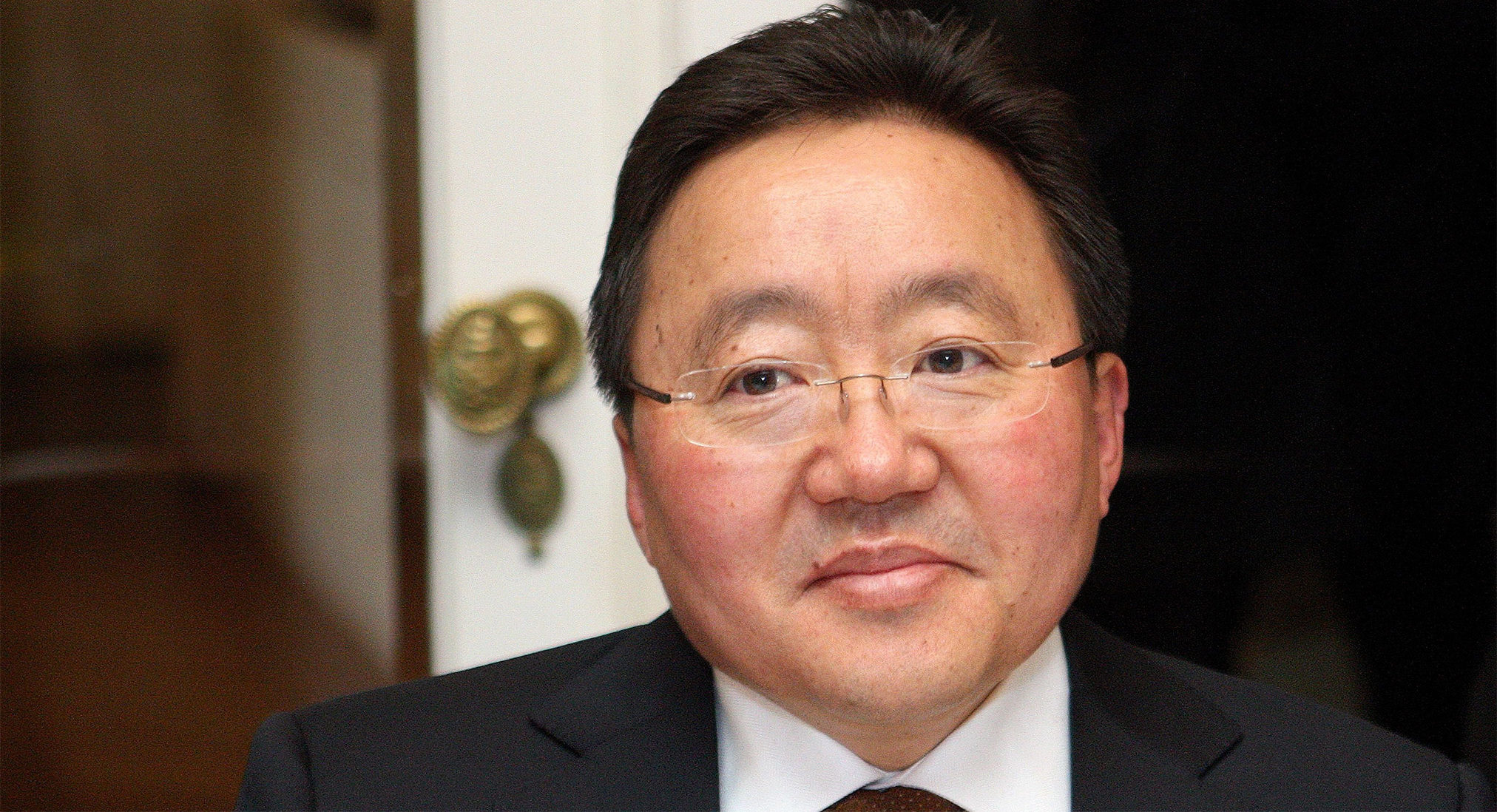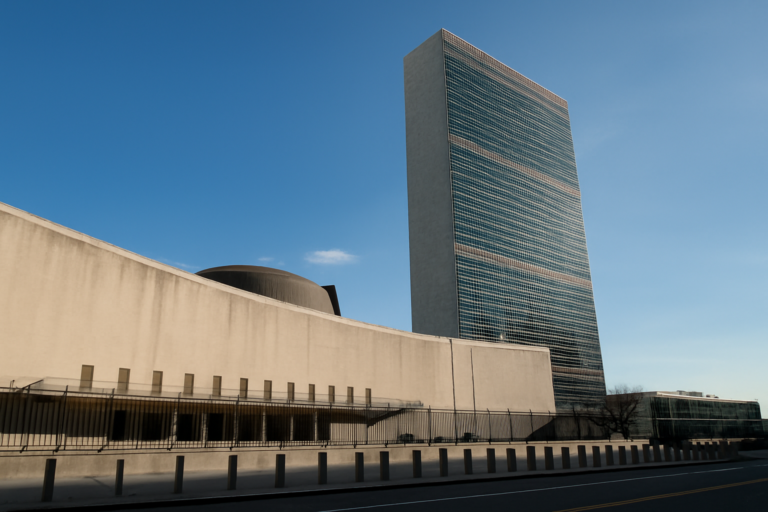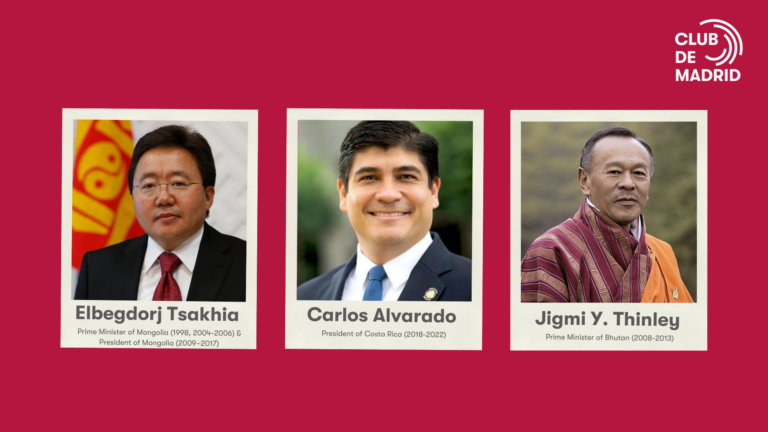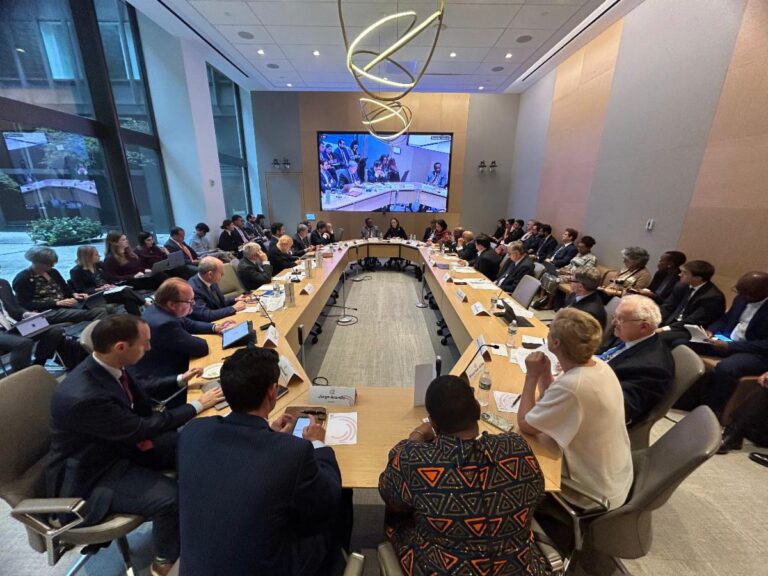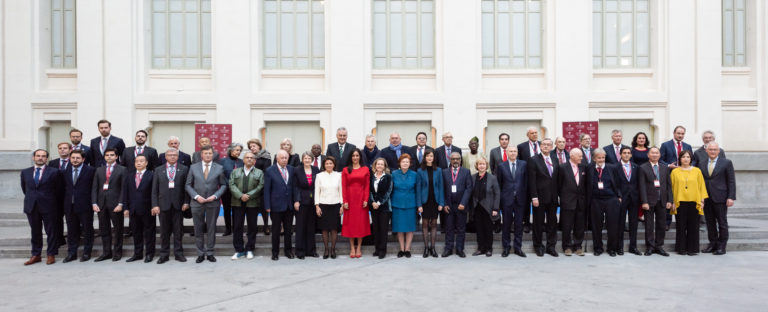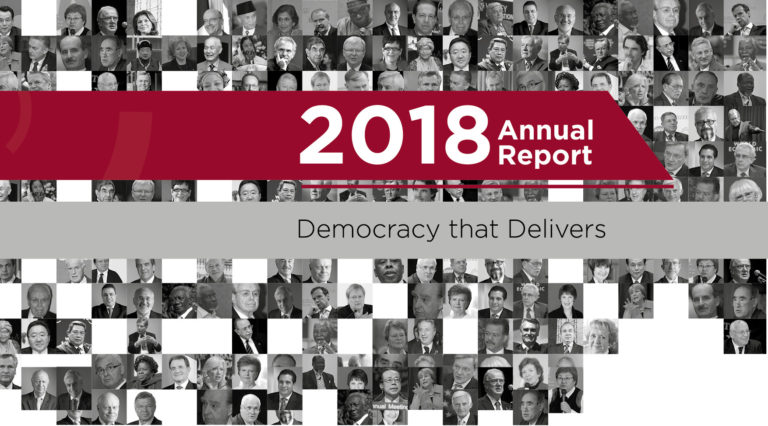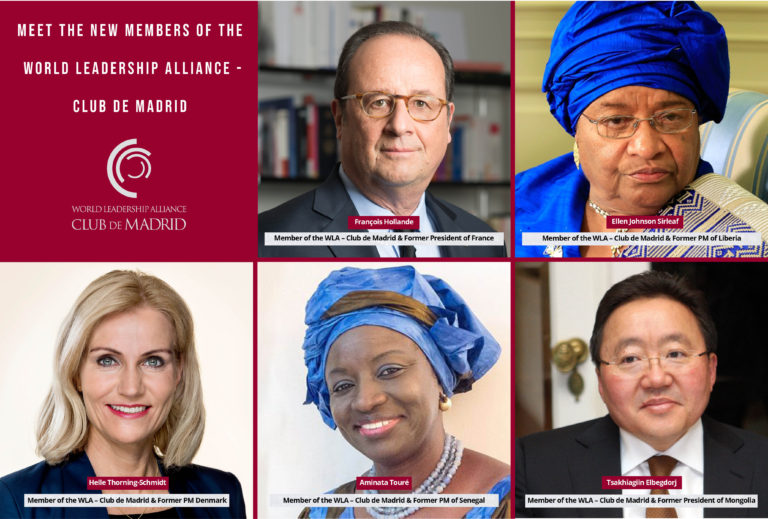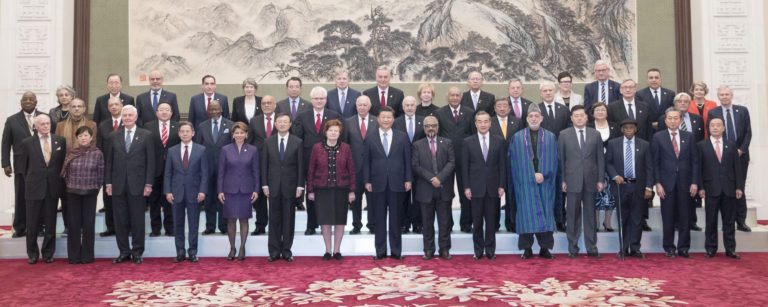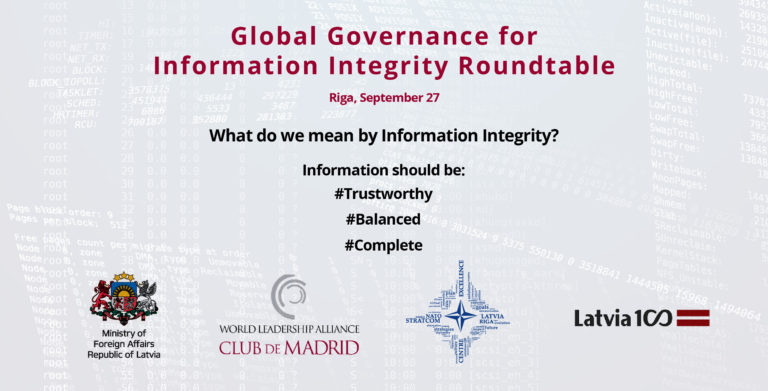Elbegdorj Tsakhia is a Member of Club de Madrid and currently serves on the Board of Directors.
Elbegdorj is a public servant, a freedom fighter, and a policymaker from Mongolia. In 1990, he was one of the key leaders of the Mongolian Democratic Revolution that ended seven decades of one-party rule. Since then, Elbegdorj has continuously served Mongolia as a Member of Parliament four times, as Prime Minister two times, and was elected President for two terms (2009 – 2017).
As Prime Minister, Member of Parliament, and President, Elbegdorj prioritized strengthening the rule of law in Mongolia, fostering social justice, fighting poverty, combating corruption, supporting environmental sustainability, and advancing vibrant participatory democracy. He has also initiated and led many social, economic, and governance reforms.
Aiming to consolidate democracy in Asia, President Elbegdorj established the Asian Partnership for Democracy initiative within the confines of the Community of Democracies, the largest international organization that drives the global democracy agenda, which Mongolia presided in 2011-2013. Under the chairmanship of the Community of Democracies, he developed a plan to promote civil society and advocate women’s rights, particularly political ones.
Now he serves as the International Commission against Death Penalty (ICDP) Commissioner, Patron of the World Sustainable Development Forum (WSDF), and President of the World Mongol Federation. In 2022, he became a member of The Elders. In Mongolia, he continues his work to improve public policy, governance, and democracy through the Institute. During his tenure as President, he also focused on climate change, air and soil pollution impacts.
Elbegdorj holds a Master of Public Administration from Harvard University John F. Kennedy School of Government (2002) and a Bachelor’s degree in Journalism from Land Forces Military Academy of Lviv of former USSR (1988). Since 2023, he has been a Bernard and Susan Liautaud Visiting Fellow at Stanford University Freeman Spogli Institute for International Studies, focusing on democracy, disarmament, and governance across Asia.
